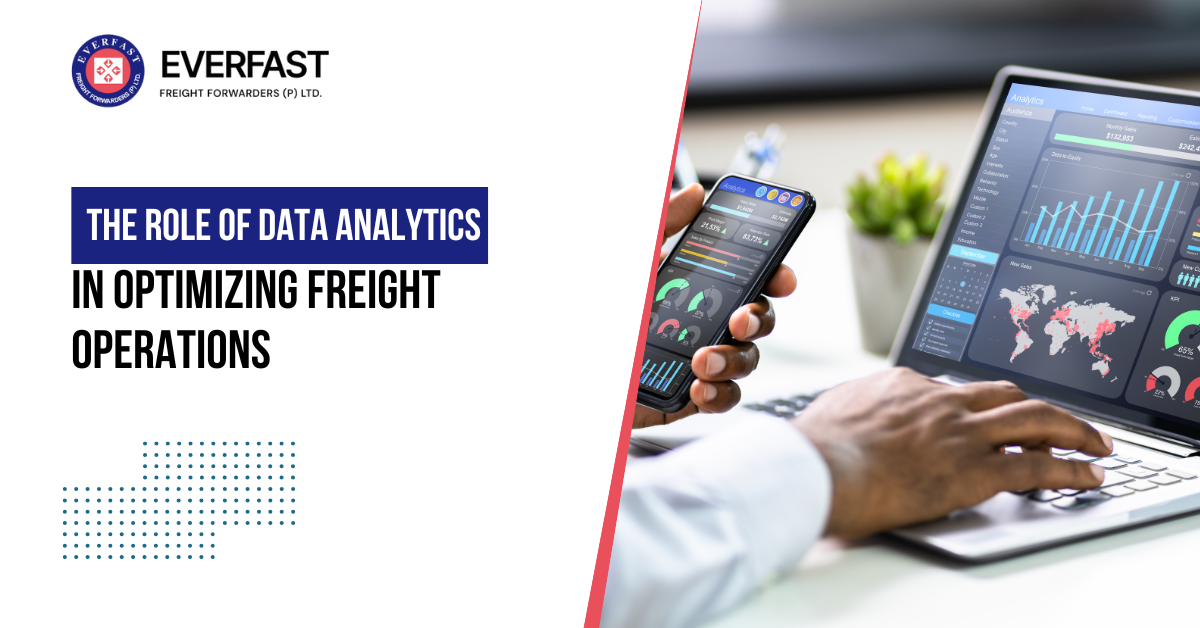
The Role of Data Analytics In Optimizing Freight Operations
Freight operations have evolved far beyond manual logs and instinct-driven decisions. Today, data analytics is revolutionizing how logistics companies plan routes, manage fleets, and reduce costs. By harnessing the power of data, businesses can streamline operations, enhance efficiency, and deliver goods faster—all critical in an industry where time and margins are everything.
1. How Data is Transforming Freight Logistics
Every shipment, route adjustment, and fuel stop generates valuable data. The key lies in leveraging this information to make smarter, more informed decisions. By analyzing both historical trends and real-time insights, logistics companies can optimize their workflows—whether it’s dynamically rerouting trucks to avoid congestion or fine-tuning fuel usage to improve cost-efficiency. Take predictive analytics, for instance. By identifying demand patterns, companies can pre-emptively adjust shipping schedules, reducing the number of empty hauls. This translates to lower fuel expenses, maximized fleet utilization, and improved customer satisfaction through consistent, on-time deliveries.
2. Optimized Route Planning for Speed and Precision
Anyone who has experienced a traffic jam understands how frustrating delays can be. Now, scale that issue across an entire logistics network, and you have a significant operational challenge. This is where advanced route optimization steps in.
By integrating GPS tracking, real-time traffic analysis, and weather forecasting, freight companies can chart the most efficient paths for their deliveries. This proactive approach minimizes unexpected delays, cuts fuel consumption, and keeps shipments moving seamlessly. The result? Reduced transit times, lower operational costs, and customers who can rely on precise delivery schedules.
3. Reducing Costs Without Compromising Quality
Managing logistics costs is a delicate balancing act. Fuel price volatility, vehicle maintenance, and inefficient routing can quickly eat into profit margins. However, data analytics provides a strategic advantage by pinpointing areas of waste and inefficiency. Predictive maintenance is a prime example of how analytics is reshaping cost management. Instead of reacting to breakdowns, companies can utilize sensor-driven diagnostics to detect potential mechanical failures before they happen. This proactive strategy extends vehicle lifespan, prevents costly repairs, and minimizes downtime—ensuring that operations remain smooth and uninterrupted.
4. Enhancing Supply Chain Transparency and Reliability
In an industry where precision and reliability are paramount, real-time visibility across the supply chain is no longer a luxury—it’s a necessity. Delays, misplaced shipments, and logistical bottlenecks can disrupt entire operations, making transparency essential. Cloud-based analytics platforms offer a comprehensive view of shipment movements, inventory levels, and warehouse efficiency. With instant access to this data, logistics managers can make agile, informed decisions that prevent disruptions. More importantly, this level of transparency builds trust with customers who expect accurate, real-time updates on their deliveries.
5. Meeting the Modern Customer’s Expectations
Today’s consumers demand fast, reliable deliveries with minimal hassle. Data analytics allows logistics companies to stay ahead of these expectations by refining their supply chain strategies and offering precision-driven services.
By analyzing customer behavior and demand patterns, companies can introduce flexible shipping options, enhance last-mile delivery accuracy, and improve estimated arrival times. This data-driven approach not only strengthens customer loyalty but also positions businesses as industry leaders in service excellence.
Final Thoughts
Freight logistics is no longer just about transporting goods—it’s about optimizing every mile, every resource, and every decision. Data analytics is at the heart of this transformation, equipping companies with the insights needed to reduce costs, enhance efficiency, and exceed customer expectations. In an era where operational precision defines success, businesses that embrace data-driven strategies will lead the pack, setting new benchmarks in reliability, speed, and service excellence.
